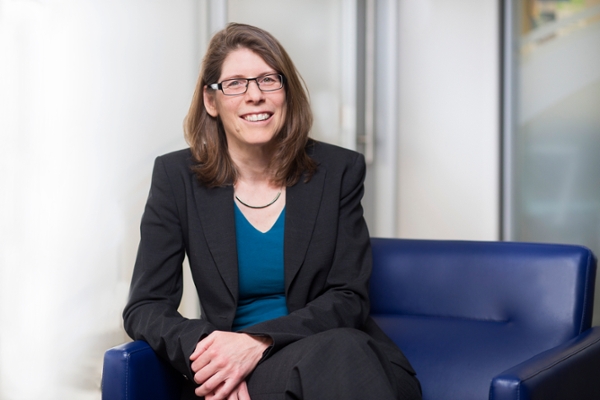
Multidisciplinary Collaboration and Evidence in Decision-Making
The fundamental question in collaborative research is how to construct more inclusive, multidisciplinary teams of individuals who are willing to move beyond their own understandings and produce something new in collaboration with others.
By Peggy Schmeiser, CSIP Associate Director and JSGS Assistant ProfessorThe fundamental question in collaborative research is how to construct more inclusive, multidisciplinary teams of individuals who are willing to move beyond their own understandings and produce something new in collaboration with others. This process challenges the research community to come together in new ways to solve large-scale global problems while asking ourselves what we mean by evidence—whose evidence are we relying on and on what basis do we feel it is credible and reliable? Looking at an issue from different perspectives could give us completely different ways of understanding problems and finding solutions. As individual researchers, we must admit that we have much to learn from one another, not just about the topics we consider but also about our own patterns of thought.
What is evidence and who owns it?
It is incumbent on us to revisit what we mean by evidence and how we go about using and producing it. It is not about doing away with it, rather, we have to be clear about its origins and the basis on which we think about issues. Many discourses now urge us to think more about our own cognitive processes. We should not just talk about what we think or what we presume to know: we should ask ourselves why we think that way and be very clear about our terms, including their limitations and credibility.
We also need to share our information in a much more transparent way with the public. This is not only about identifying the potential limitations of particular scientific findings; it is also about what we observe regarding the way science is used, whether there may be political influence involved, and the origins of various claims.
Bridging the thought divide
Information sharing with the public also raises questions about belief and conviction. You can throw as much evidence or science as you want at people with certain presumptions or perspectives and it often won’t make a difference. We should not only question how beliefs and convictions feed into people’s assumptions about reality, we must also consider how they may change over time (because we know that they can!). While many scholars touch on the role of bias and risk perception in decision-making, few have ventured to consider how certain beliefs, be they regarded as “religious” or “secular,” can influence personal and social responses to issues like vaccines and energy alternatives.
When we think of topics like evidence in policy and decision-making, we often consider the work of scientists, cognitive psychologists and political scientists. I believe we need to broaden the discussion—to bring in, for example, those cultural theorists and scholars of religion who can understand and interpret public and social perceptions of science and evidence in novel and unique ways.

